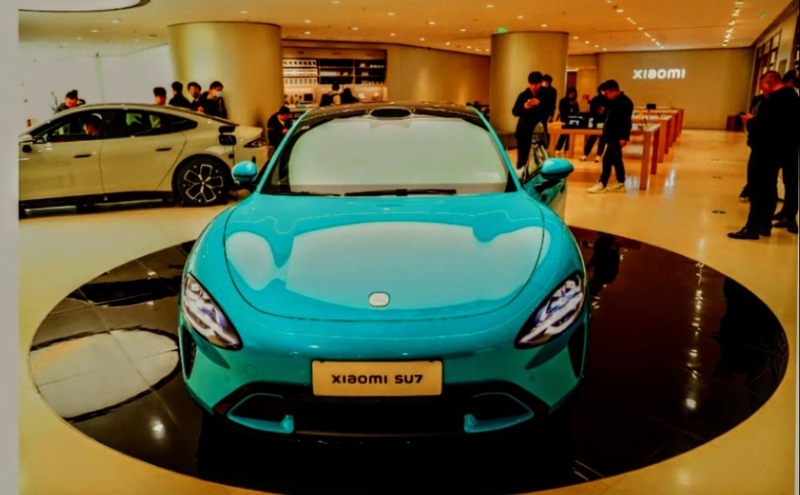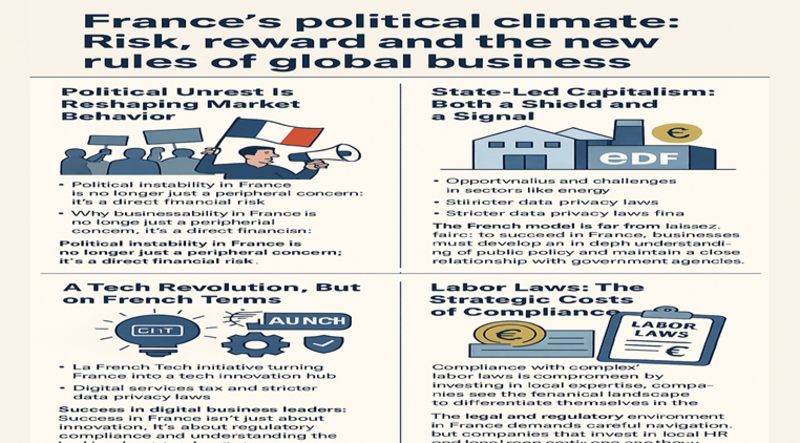 A brand new Xiaomi SU7 in a showroom. Photo Credits: VCG via Getty Images
A brand new Xiaomi SU7 in a showroom. Photo Credits: VCG via Getty Images
European Union Imposes Tariffs On Electric Vehicles From China
Europe
Business
While a majority of EU member states supported the decision, key economies such as Germany and four other nations opposed the tariffs, warning of potential retaliatory measures from Beijing and risks to the global economy.
Protecting European EV Manufacturers
The EU’s main justification for the tariffs is to level the playing field for European manufacturers, who argue that heavy Chinese subsidies have resulted in artificially low prices for Chinese EVs, creating unfair competition. Local European companies, particularly startups and mid-size manufacturers, were finding it increasingly difficult to compete against the flood of cheaper Chinese models.
With the tariffs in place, investor confidence in the European EV sector is expected to rise, likely boosting the share prices of local EV companies. European governments view this as a necessary step to protect investments, jobs, and innovation within their borders.
However, a possible downside is that EV adoption in Europe may slow. Chinese EVs, known for their affordability, had begun to drive mass adoption of electric cars across the continent. Increased prices due to tariffs could make EVs less accessible for middle-income consumers, delaying progress toward environmental and climate goals.
China Prepares for Retaliation
China has reacted sharply to the EU’s move and is preparing a suite of counter-tariffs targeting European exports. Key sectors under consideration include:
- Brandy and dairy products
- Pork and other agricultural exports
- Automobiles, particularly gasoline vehicles with large engine capacities
These retaliatory tariffs are part of a broader strategy by China to defend its economic interests while signaling its disapproval of Western protectionist policies.
China’s response is not expected to stop at simple tariff impositions; Beijing is also exploring measures to reduce dependency on Western technologies and to fortify its alliances with other emerging economies, particularly through BRICS partnerships.
Implications for the Global Economy
This brewing conflict between two of the world’s largest economic blocs raises serious concerns about the stability of global trade and investment flows:
- Supply Chains: Trade restrictions could disrupt supply chains, especially in the automotive and energy sectors.
- Inflation: Increased tariffs may lead to higher prices for consumers, feeding into inflationary pressures already faced by many global economies.
- Geopolitical Tensions: Beyond economic consequences, the EV trade war may intensify geopolitical divisions, forcing other nations to choose sides or develop new alliances.
Moreover, the global ambition of achieving widespread EV adoption to combat climate change could face setbacks if major markets remain entangled in tariff wars.
A Multilateral World Requires Collaboration
While protecting domestic industries is a legitimate concern, the EU must recognize China’s critical role in global EV production and green energy transitions. China dominates the global EV manufacturing landscape and leads in critical minerals, battery production, and technological innovation.
A unilateral approach risks further dividing global trade networks. Instead, fostering collaboration and synergy between China and Western economies would better serve global interests — protecting consumers, accelerating EV adoption, and achieving shared environmental goals.
The world today is multilateral. Successful economies will be those that balance protection of domestic interests with strategic international partnerships.
The Future of EVs Amid Growing Trade Wars
The future of electric vehicles appears increasingly uncertain. Protectionist measures by the EU and the United States could fragment the global EV market, creating regional differences in adoption rates and pricing.
Yet, China’s dominance in the sector remains largely unshaken. With substantial government subsidies, technological advancements, and expanding global partnerships, China is likely to continue driving EV affordability and adoption worldwide, even if Western markets impose restrictions.
The world watches closely as the EU-China EV standoff unfolds — a defining chapter in the race toward a cleaner, electrified future.
The new tariffs on Chinese EVs by the EU highlight the growing complexity of global trade and technological rivalry. As nations prioritize their domestic interests, the path to a sustainable and cooperative global economy becomes more challenging, demanding careful diplomacy, innovation, and balance.



